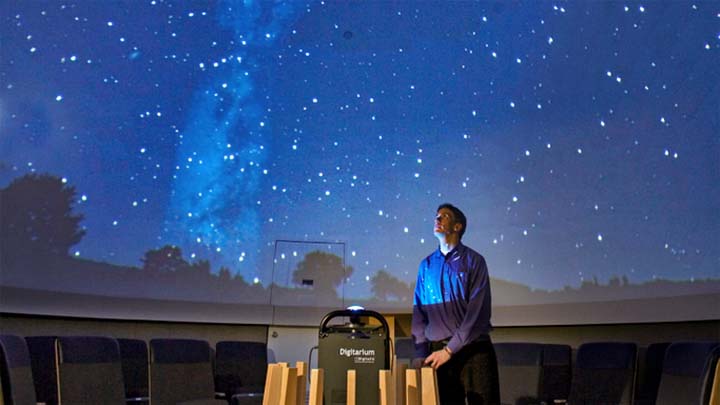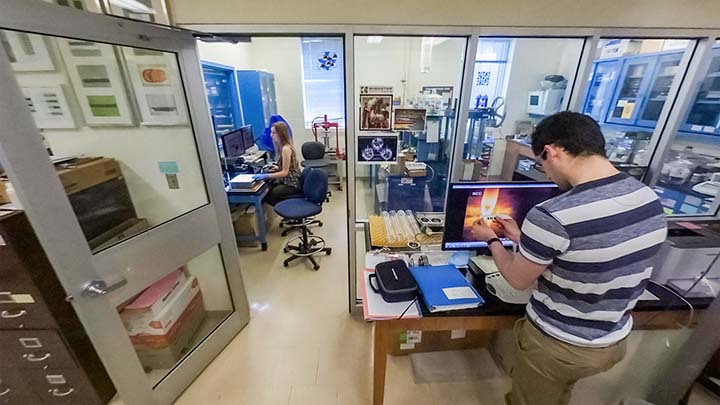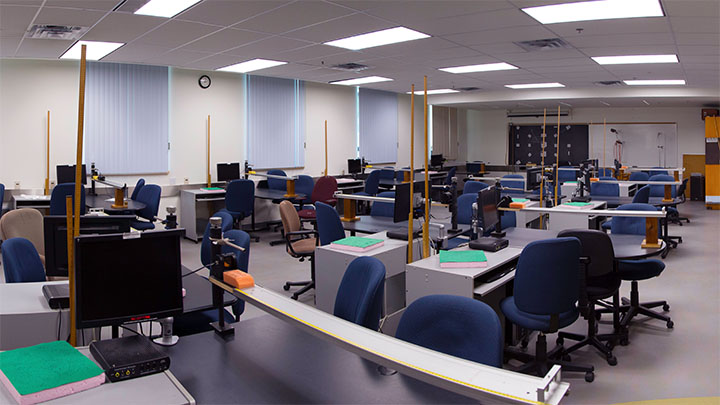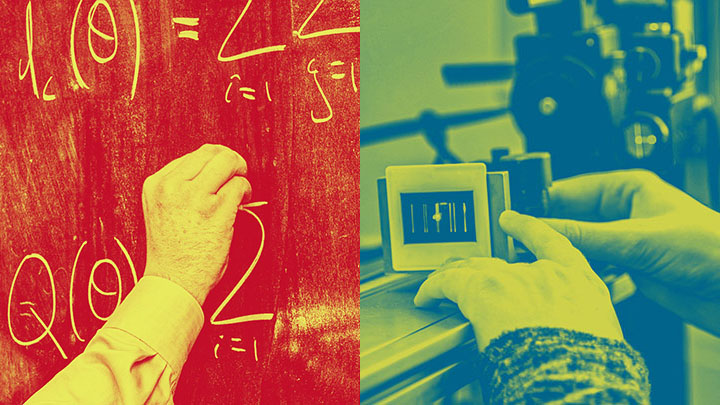Overview
The Department of Physics & Astronomy is research intensive, with a strong commitment to excellence in teaching. In its unique undergraduate programs, students begin by learning the fundamental concepts and ideas through which physics has transformed the modern world and then are taught how to translate these ideas into the elegant language of mathematics, solve questions, and develop deeper understanding.
An undergraduate degree in Physics & Astronomy is a good choice for anyone who seeks an understanding of the world at its most fundamental level. Physics underlies all other sciences. Its power comes from this universal nature and the fact that training in physics provides transferrable skills in experimental design, modelling, computing, critical thinking, and problem-solving. Students appreciate the challenge and excitement of experimentation in the laboratory through witnessing new physical phenomena, hands-on testing, and the development of new theories.
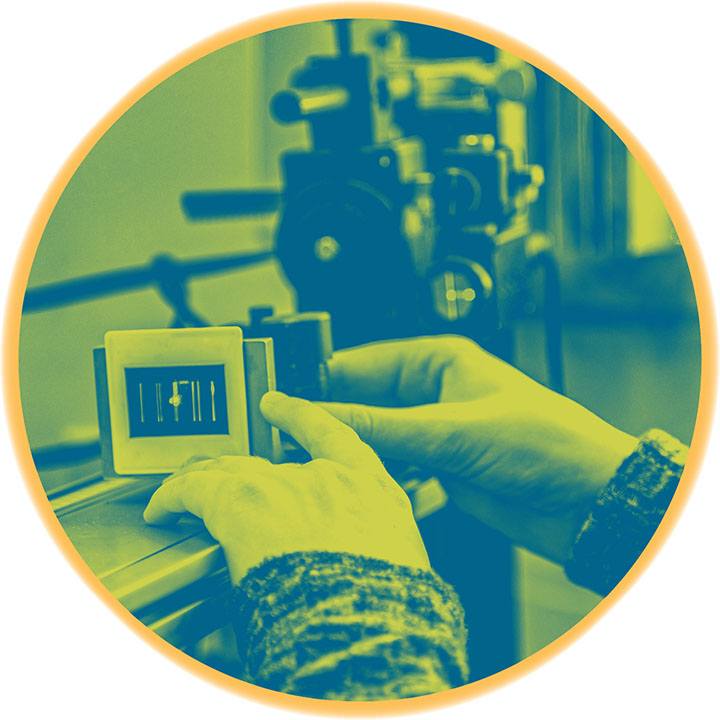
Areas of Research
Students enrolled in a Physics and Astronomy program have the opportunity to explore a wide range of topics including:
Astrophysics
Benefitting from remarkable advances in telescope technology, instrument design, computing techniques, and software for data analysis, modern astrophysics combines many branches of physics, mathematics, and computing to explore the universe beyond the Earth.
Elementary Particle Physics
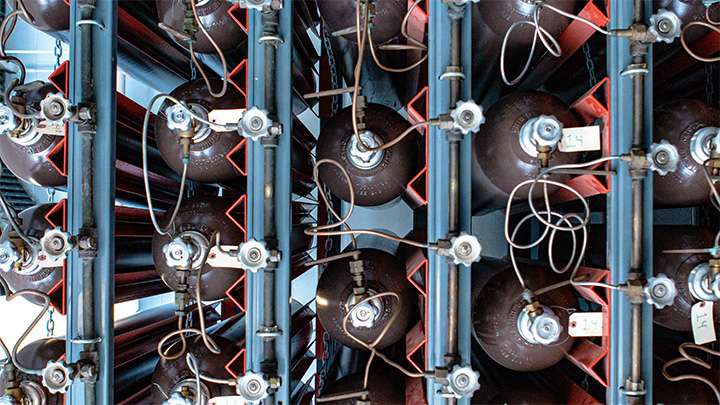
Laser Physics, Quantum Optics & Ultracold Atoms

Quantum Condensed Matter Physics
Quantum condensed matter theory attempts to describe and sometimes predict the behavior of systems of relatively large numbers of particles at low energies.

Biophysics
Biophysics bridges physics and biology and applies the principles, techniques, and problem-solving skills from the physical sciences to the study of living systems.
Medical Physics
Medical Physics and Health Physics are professions and research disciplines where physics knowledge of the laws which govern our universe is used to study, protect, diagnose and treat the human body.
Level 2 Programs
Familiarize yourself with some of the Level 2 Programs offered by the Department of Physics and Astronomy.

LINK
Honours Astrophysics
Destinations
Virtually tour the following state-of-the-art labs and facilities of the Department of Physics and Astronomy.
